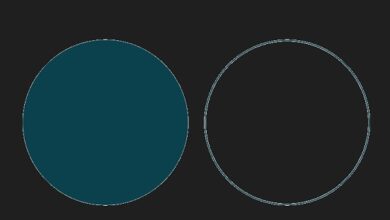Difference between primary and secondary market and Similarities with FAQs
Primary and secondary market
In this article we will elaborate you the difference between primary and secondary market and Similarities with FAQs.
What does primary market mean?
The primary market is the investment area where assets are first created. In this market, an entity (usually an investment bank) purchases securities with money received directly from the issuer and then distributes them through sale to the public. Investors will buy these securities the moment they are issued to obtain new stocks or bonds before anyone else in the secondary market. These transactions are very common when there are large amounts of capital involved either to finance a large project or acquire an existing company. The price paid by investors is used to cover all expenses related to the creation of the financial asset and normally does not reflect its true value until it is traded on the secondary market.
What does secondary market mean?
The secondary market is a type of financial market in which securities that have already been previously issued are traded. These investments can be stocks, bonds or other financial products and are traded between buyers and sellers to make profits from the difference between the purchase and sale price. The secondary market does not involve any additional issuance or direct collection by the original issuer, but rather allows the holder to transfer ownership of it without restrictions to a third party. Transactions carried out in this market are faster and less expensive than primary operations, which offers greater flexibility for participants.
Similarities
The primary and secondary markets are key financial concepts that refer to how the economy works. Both markets have in common the fact that they allow investors to buy and sell assets. The primary market is one in which companies issue new securities to finance themselves, while the secondary market allows the resale of these shares among other investors. In both cases, prices fluctuate depending on various economic variables; However, supply and demand significantly influence this whether for sale or purchase. In addition, there is a third element: financial intermediaries (stock brokers) in charge of facilitating transactions between both parties.
Differences
Primary market refers to the buying and selling of securities by investors, such as stocks or bonds. These transactions take place directly between the seller and the buyer. The secondary market , on the other hand, is a market where investors exchange these already existing assets with each other; This means that there is no new issuance of securities from the original source. Secondary market liquidity depends primarily on volume and varies over time; The greater the demand, the easier it will be for investors to buy and sell existing financial instruments at competitive prices.
Frequent questions
What are primary markets?
Primary markets are the places where an asset, such as a stock or bond, is first offered to the public. These markets allow companies to issue new stocks and bonds to raise capital. Investors who purchase these new finances generally pay the seller’s (issuer’s) offering price plus transaction-related costs.
What is the primary and secondary market?
The primary market is the market in which securities are first issued. The price of these securities is established between the issuer and the buyer through an auction or direct negotiation. For example, when a government issues bonds to finance its spending, buyers purchase the new government shares through the primary market. In contrast, the secondary market is one in which investors actively exchange existing securities with each other. These transactions do not involve the original issuer of the security; only two private parties carry out the transaction: seller and buyer. Prices may vary due to factors such as supply and demand currently available in the market.
What is the main tool in the primary market?
The main tool in the primary market is investment instruments, such as stocks, bonds and other securities. These tools allow buyers to purchase financial assets directly from the companies that issue them.
What is traded in the secondary market?
In the secondary market, investors trade already issued securities such as stocks and bonds. These transactions do not involve the company that has issued the financial assets, but are carried out between a buyer and a seller. The price of these transactions depends on supply and demand in the market.
What is meant by secondary market?
The secondary market is the one used for the purchase and sale of already issued securities, such as stocks, bonds or other financial instruments. These transactions do not directly involve the original issuer of the security; Instead, investors buy and sell among themselves at a price determined by the bidder and demander.
What is the secondary market and an example?
The secondary market is a place where investors buy and sell financial assets that have already been issued. An example of this would be a stock exchange, where investors can buy or sell stocks and bonds to other buyers.
What happens in the secondary market?
Already issued securities, mainly stocks and bonds, are traded in the secondary market. This means that the securities were previously purchased from the original issuer in the primary market, but are now being offered for sale to new investors by people or financial entities that previously purchased those stocks and bonds.
What is the primary and secondary market?
The primary market is the place where new securities, such as stocks or bonds, are issued. These activities are generally carried out by institutional investors, banks and financial intermediaries. The secondary market is the place where securities already issued can be bought and sold between individual investors. In this scenario, the prices of the asset are determined by the supply and demand existing at the time.




